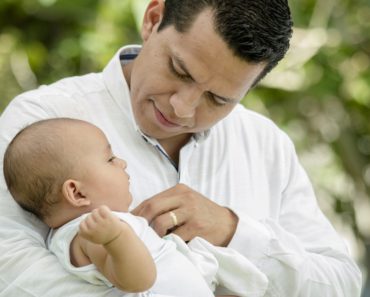Contents
- 1 Understanding the Challenges of Borderline Personality Disorder in Marriage: Key Insights for Mental Health
- 2 Understanding Borderline Personality Disorder in Marriage
- 3 Building Healthy Communication and Boundaries
- 4 Seeking Professional Support and Therapy
- 5 Self-Care and Patience
- 5.1 How does borderline personality disorder impact marriages and what are some common challenges faced by couples in this situation?
- 5.2 What are some effective strategies for supporting a spouse with borderline personality disorder in a marriage, and how can couples maintain healthy communication and emotional boundaries?
- 5.3 Can marriage counseling be beneficial for couples affected by borderline personality disorder, and what specific techniques or approaches may be helpful in improving the relationship dynamics and overall marital satisfaction?
- 5.4 Related Posts

Borderline Personality Disorder (BPD) marriage: Relationships can be challenging when one partner has BPD. Understanding the symptoms, triggers, and effective coping strategies are key to maintaining a healthy relationship. we will explore important things to know about navigating a BPD marriage and provide valuable insights for partners seeking support and understanding.
Understanding the Challenges of Borderline Personality Disorder in Marriage: Key Insights for Mental Health
Understanding the Challenges of Borderline Personality Disorder in Marriage: Key Insights for Mental Health
Navigating a marriage where one partner has Borderline Personality Disorder (BPD) can be extremely challenging. BPD is a complex mental health condition characterized by intense emotional instability, difficulty in maintaining stable relationships, and impulsive behavior. In the context of mental health, it is important to understand the unique challenges faced by couples dealing with BPD.
Communication becomes a critical aspect in marriages affected by BPD. Individuals with BPD often struggle with expressing their needs, interpreting others’ intentions, and managing conflict. Open and honest communication, coupled with active listening, can help alleviate some of the tensions that arise.
Emotional dysregulation is a key feature of BPD and can significantly impact the dynamics of a marriage. The intense and rapidly changing emotions experienced by individuals with BPD can lead to frequent arguments, misunderstandings, and feelings of rejection. Developing strategies to regulate emotions, such as mindfulness techniques or therapy, can help both partners manage these challenges.
Self-care plays a crucial role in supporting mental health within a marriage affected by BPD. Partners need to prioritize self-care, including setting boundaries, seeking individual therapy, and practicing self-compassion. Taking care of one’s own well-being allows for a stronger foundation to support the relationship.
Seeking professional help is of utmost importance when dealing with BPD in a marriage. Couples therapy, individual therapy, and medication management can provide valuable tools and resources to navigate the unique challenges faced by both partners. A mental health professional can offer guidance, support, and validation during difficult times.
In conclusion, understanding the challenges associated with BPD in the context of mental health is essential for individuals and couples alike. By prioritizing effective communication, emotional regulation, self-care, and seeking professional help, couples can work together to navigate the unique challenges that BPD presents in a marriage.
Understanding Borderline Personality Disorder in Marriage
we will explore some key things to know about borderline personality disorder (BPD) in the context of marriage and how it impacts mental health.
Building Healthy Communication and Boundaries
Building healthy communication and boundaries in a marriage with a partner who has BPD is crucial for maintaining a supportive and understanding environment. Effective communication can help both partners express their needs and concerns openly, while establishing clear boundaries can protect each individual’s emotional well-being.
It is important to acknowledge that individuals with BPD may experience intense emotions and interpersonal difficulties. Therefore, practicing active listening and empathy are essential to creating a safe space for open dialogue. By validating their emotions and experiences, you can promote a sense of trust and understanding within the relationship.
Seeking Professional Support and Therapy
Seeking professional support and therapy is beneficial for both partners in a marriage affected by BPD. Individual therapy can help the person with BPD develop coping mechanisms, manage emotions, and work on improving relationships.
Additionally, couples therapy can provide a structured and mediated environment where both partners can address challenges and work towards building a healthier relationship. It can assist in developing effective communication strategies, resolving conflicts, and enhancing understanding of each other’s perspectives.
Support groups or online communities specifically dedicated to BPD and mental health can also offer a valuable source of guidance, empathy, and shared experiences from others who have similar journeys in their relationships.
Self-Care and Patience
Maintaining self-care and practicing patience are crucial for both partners in a marriage impacted by BPD. It is important to take care of your own mental health while supporting your partner.
Engaging in activities that promote personal well-being, such as exercise, hobbies, or mindfulness practices, can help you manage stress and build resilience.
Patience plays a key role as the journey with BPD can have its ups and downs. Understanding that recovery takes time and setbacks may occur, being patient with each other and offering reassurance can foster a sense of stability and security within the relationship.
How does borderline personality disorder impact marriages and what are some common challenges faced by couples in this situation?
Borderline personality disorder (BPD) can have a significant impact on marriages and relationships. Some common challenges faced by couples in this situation include:
1. Intense emotional instability: Individuals with BPD often experience intense and rapidly changing emotions, which can create instability within the relationship. Their emotions may fluctuate between extreme love and affection to anger or withdrawal, making it difficult for their partner to understand and adapt to their emotional needs.
2. Fear of abandonment: People with BPD commonly have a deep fear of being abandoned or rejected. This fear can manifest in clingy behavior, constant need for reassurance, and jealousy, which can strain the relationship and make it challenging for their partner to establish healthy boundaries.
3. Impulsive behaviors: BPD is associated with impulsive and self-destructive behaviors. This can include substance abuse, reckless spending, sexual promiscuity, or self-harm. These behaviors can put a strain on the relationship and lead to conflicts regarding the individual’s safety and well-being.
4. Difficulty regulating emotions: Individuals with BPD often struggle with regulating their emotions and may have difficulties resolving conflicts peacefully. They may resort to intense arguments, tantrums, or passive-aggressive behaviors, making it difficult for their partner to communicate effectively and maintain a harmonious relationship.
5. Challenges with trust and intimacy: Due to their fear of abandonment, individuals with BPD may struggle with trusting others and forming secure attachments. This can result in difficulties with intimacy and maintaining long-term relationships. Their distrust and fear of rejection can lead to frequent suspicions, jealousy, and controlling behaviors.
6. Caring for oneself vs. caring for the partner: Partners of individuals with BPD may find themselves constantly prioritizing the needs and emotions of their loved one over their own. This imbalance can result in feelings of exhaustion, resentment, and a lack of personal fulfillment within the relationship.
It’s important to note that with proper support, therapy, and communication, couples affected by BPD can work together to overcome these challenges and build a healthy and strong relationship. Seeking professional help, such as couples therapy or individual therapy for the person with BPD, can greatly assist in managing and addressing these issues.
What are some effective strategies for supporting a spouse with borderline personality disorder in a marriage, and how can couples maintain healthy communication and emotional boundaries?
Borderline personality disorder (BPD) can greatly impact a marriage, but with the right support and strategies, couples can navigate this challenge and maintain a healthy relationship. Here are some effective strategies for supporting a spouse with BPD and maintaining healthy communication and emotional boundaries:
1. Educate yourself: Take the time to learn about BPD, its symptoms, and how it affects your spouse. Understanding the disorder can help you better respond and empathize with their experiences.
2. Encourage therapy: Encourage your spouse to seek individual therapy with a mental health professional who specializes in BPD. Therapy can help them develop coping skills, manage emotions, and improve their overall well-being.
3. Attend couples therapy: Couples therapy can help both partners understand and communicate their needs effectively. It can provide a safe space to address relationship conflicts, emotional triggers, and work on finding solutions together.
4. Validate their emotions: People with BPD often experience intense emotions and emotional dysregulation. Validate their feelings by acknowledging their experiences, showing empathy, and expressing understanding.
5. Set clear boundaries: Establishing clear and consistent boundaries is essential in any relationship, especially when dealing with BPD. Clearly communicate your needs and limits, while also respecting your spouse’s boundaries. This can help prevent codependency or enmeshment.
6. Practice self-care: Taking care of your own mental and emotional well-being is crucial when supporting a spouse with BPD. Make sure to engage in activities that bring you joy, seek support from friends and loved ones, and prioritize self-care as a way to maintain your own stability.
7. Encourage healthy coping mechanisms: Help your spouse identify and develop healthy coping mechanisms such as mindfulness, relaxation techniques, and engaging in activities they enjoy. Encouraging them to seek alternative ways of managing stress and emotions can significantly benefit their overall mental health.
8. Communicate openly: Open and honest communication is key in any relationship. Create a safe space where both partners can express their feelings and concerns without fear of judgment or criticism.
Remember, supporting a spouse with BPD can be challenging, so it’s important to reach out for professional help when needed.
Can marriage counseling be beneficial for couples affected by borderline personality disorder, and what specific techniques or approaches may be helpful in improving the relationship dynamics and overall marital satisfaction?
Marriage counseling can indeed be beneficial for couples affected by borderline personality disorder (BPD). BPD often leads to challenges in managing emotions, impulsive behaviors, and unstable relationships, which can significantly impact a marriage. However, with the right approach and techniques, couples can work towards improving their relationship dynamics and overall marital satisfaction.
One effective technique in marriage counseling for couples affected by BPD is dialectical behavior therapy (DBT). DBT focuses on teaching individuals how to regulate their emotions, improve interpersonal effectiveness, and develop distress tolerance skills. In a marital context, DBT techniques can help both partners understand and manage the intense emotions that often arise in BPD, effectively communicate their needs, and navigate conflicts in a healthier manner.
Another approach that may be helpful is emotion-focused therapy (EFT). EFT aims to foster emotional connection and understanding between partners by exploring and expressing underlying emotions. For couples affected by BPD, EFT can provide a safe space for them to explore their emotional vulnerabilities, address attachment insecurities, and enhance empathy and validation within the relationship.
It is also important for the therapist to ensure a non-judgmental and validating environment during counseling sessions. Couples affected by BPD often struggle with self-esteem and fear of abandonment, so creating a safe space where they feel understood and accepted is crucial.
In addition to specific techniques, it is essential to incorporate psychoeducation into marriage counseling. Psychoeducational components can help both partners understand the nature of BPD, its impact on the relationship, and the strategies they can implement to support each other and maintain stability.
Overall, marriage counseling for couples affected by BPD requires an approach that addresses emotional regulation, communication, empathy, and understanding. By incorporating techniques such as DBT and EFT, while fostering a non-judgmental environment and providing psychoeducation, couples can work towards improving their relationship dynamics and overall marital satisfaction.
In conclusion, it is crucial to acknowledge that being in a marriage with someone who has borderline personality disorder (BPD) can present unique challenges. Understanding the symptoms and dynamics of BPD is vital for both partners to navigate the relationship successfully. Communication, empathy, and patience become even more essential in this context. It is important to remember that BPD individuals are not defined by their disorder but rather are multifaceted individuals who deserve love and support. Seeking professional help, such as therapy or couples counseling, can provide valuable tools and guidance for both partners. With commitment and a willingness to learn and grow together, it is possible to cultivate a strong and fulfilling marriage, even in the face of BPD.







